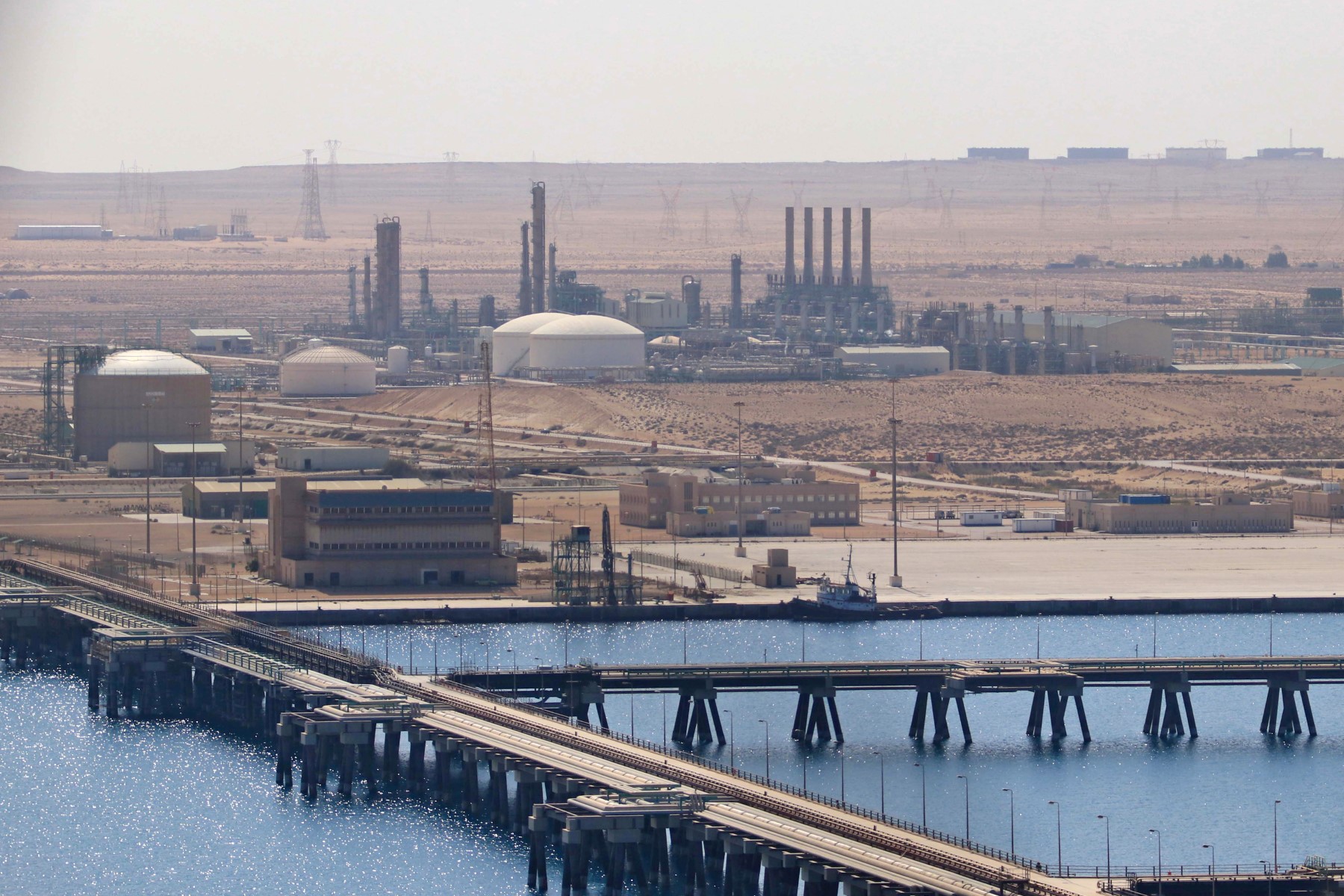Tripoli, Libya — A key oil refinery in western Libya suspended operations after armed clashes erupted early on Sunday, causing fires in several storage units, the state petrol company said.
Libya’s National Oil Corporation (NOC) “declares a force majeure… because several Zawiya refinery storage tanks sustained significant damage from gunfire… that led to serious fires”, it said in a statement.
Videos posted on social media showed several burning oil tanks at the refinery in Zawiya, some 45 kilometers (28 miles) west of the capital Tripoli.
It is the only refinery supplying the local market with fuel products.
“This damage is a direct consequence of armed clashes using light and medium weapons in the refinery’s vicinity,” the NOC statement said.
It said that despite the clashes continuing, emergency personnel “were able to bring the fires and gas leaks under control, and limit the spread of danger”.
News sites in Libya reported one person dead and 10 wounded in the clashes, although there was no official confirmation of the toll.
“All of the fires in the refinery’s storage units that were hit in the clashes have been brought under control,” NOC spokesman Khaled Ghulam said on Libya al-Ahrar television.
“We can assure the citizens of Zawiya and Tripoli that fuel supplies to the Brega Oil distribution company’s tanks is secure, and that petrol deliveries to service stations will continue without disruption.”
The Zawiya refinery, built in 1974, is Libya’s second largest with a refining capacity of more than 120,000 barrels per day (bpd).
Zawiya city is the third largest in Libya’s Tripolitania region, after the capital and Misrata.
It has seen fierce clashes between armed factions. In May, fighting between rival groups killed one person and wounded a dozen before tribal chiefs and other notables intervened.
Sunday’s fighting prompted the closure of classes in all schools and at Zawiya university, the official Libyan News Agency reported.
The coast road linking the city to Tripoli has reopened after being closed until the early morning.
The state of force majeure, invoked in exceptional circumstances, allows the NOC exemption from liability in the event it cannot comply with oil delivery contracts.
Libya has Africa’s most abundant hydrocarbon reserves but is struggling to recover from years of conflict after the 2011 NATO-backed uprising that overthrew longtime dictator Moamer Kadhafi.
There have been frequent blockades of oil installations, often because of social demands or political disputes.
However, thanks to calmer security conditions and new investment, production which had hovered for a decade at around 1.2 million bpd had risen to 1.4 million bpd in early December.
Pre-uprising output was between 1.5 million bpd and 1.6 million bpd.

